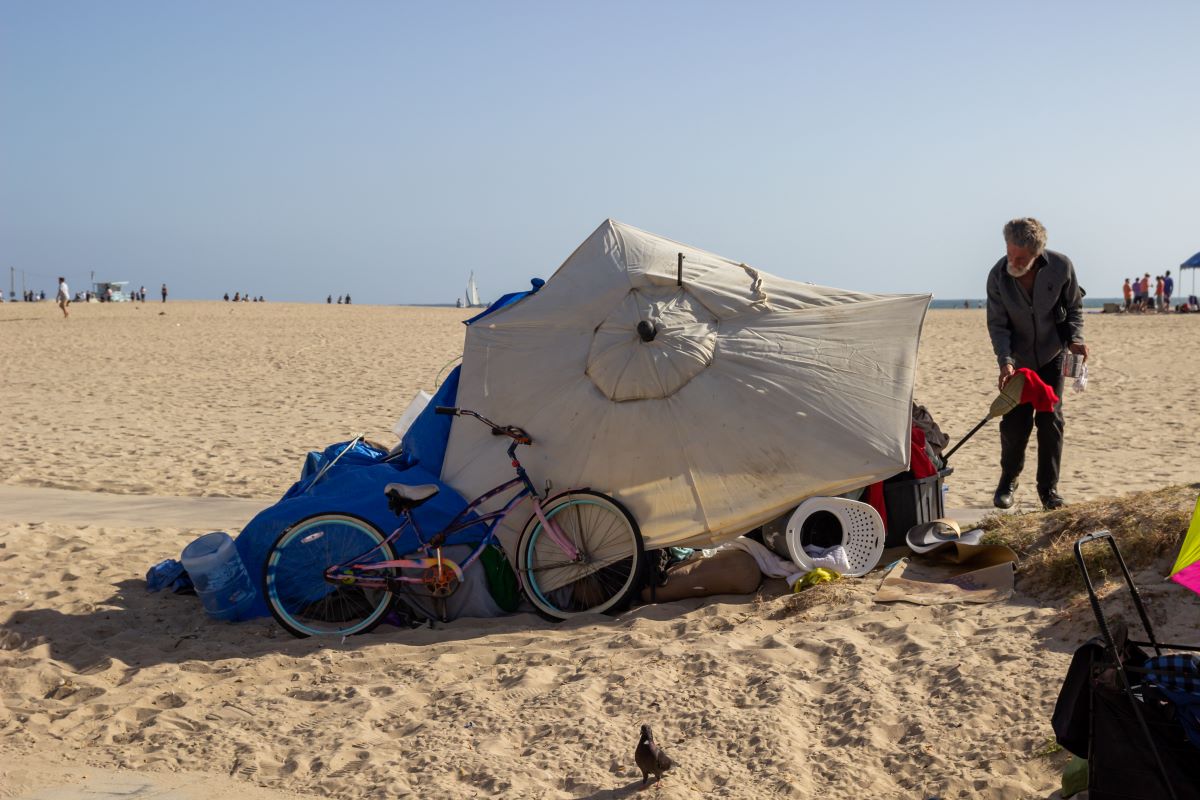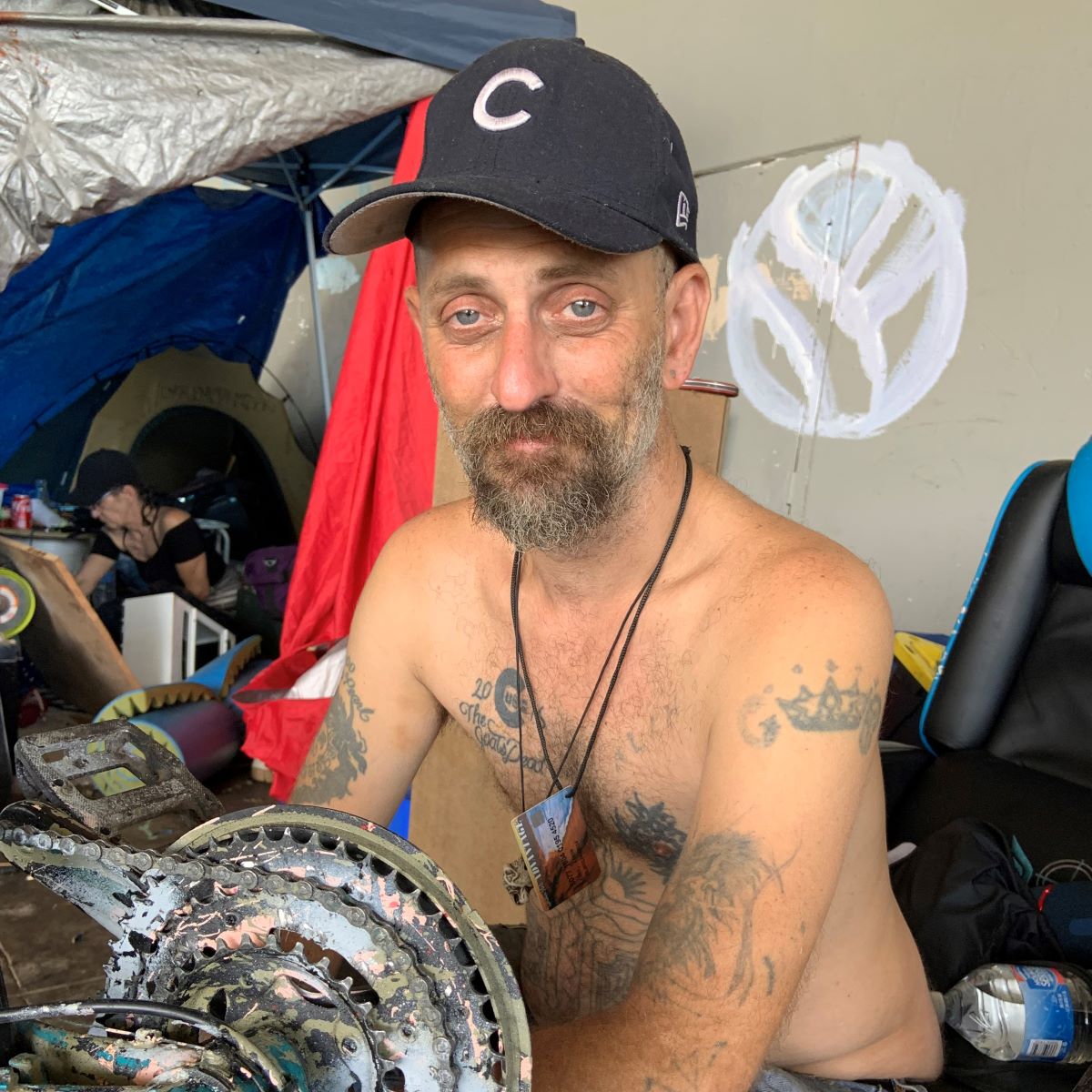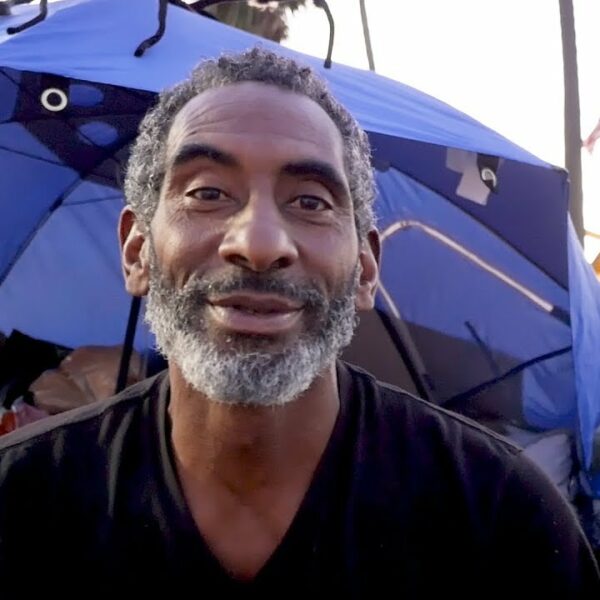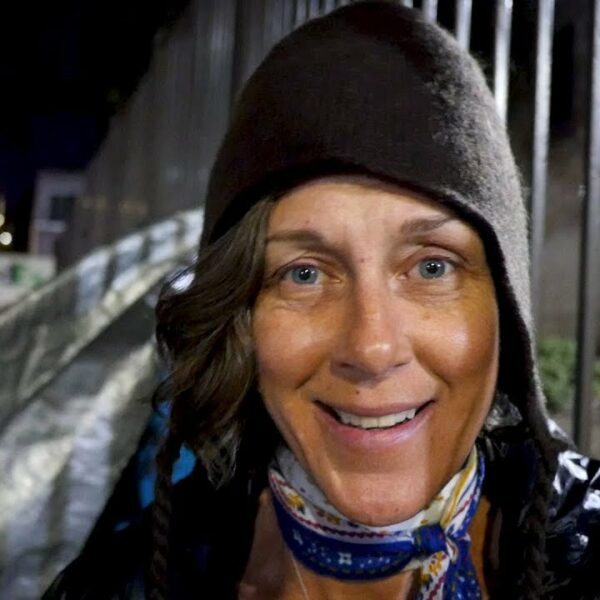Robert Karron Shares the Lived Experience of Unhoused Individuals in Venice Beach
Editor’s Note: Robert Karron lives in Venice Beach. He enjoys collaborating with the unhoused people in his neighborhood to create statements that attest to the complexities of their lives. Robert started this project to present details of people’s lives that tend not to come across in standard articles.
“Only in these direct, sometimes meandering, always present pieces, I think, can one remember that these are unique persons whose beliefs, thoughts, histories, and experiences will never be repeated again, in the history of time.” ~ Robert Karron
This is part one in a three-part series.
Meet Aaron
My name is Aaron (like Moses’ brother), and I’m 44 years old. I grew up just south of Chicago. It wasn’t a great neighborhood. I got mixed up with a gang. I thought it was great back then. Now that I’m older, I see it wasn’t. I was with them for about 20 years. I don’t want to talk about what we did. My parents were married, but they were alcoholics. I have a little sister, but I don’t know what she’s up to now. I haven’t talked to her in 15 years.
School was hard for me because I was hyperactive, and I think I have undiagnosed ADD.
I got in a lot of trouble, and I never did my homework. I was good at math, though—I took advanced math in the 6th grade. It just comes easily to me. It clicked. The teacher would say, do it this way, but then I’d say, “Why can’t you just do it this way?” My way was the better way. I didn’t do well in my other classes, though, so they kicked me out. I ended up getting my GED, but later.
For college, I went to the University of Phoenix online. I majored in accounting thinking I’d do it for the math. But accounting has nothing to do with math. I did well—I only failed one class, one time. But I ended up not using the accounting degree. Instead, I went into IT.
I worked for Kroger—and it was great for a while. Loved the money. They moved me all around the country. 17 states. Loved the travel. I did that for eight years until they ran out of work for me. We rebuilt the network security—the servers, everything. Hated the stress, but it was great otherwise. They got us hotels and Airbnbs. They gave us a stipend. I didn’t have to pay for anything except my phone bill. But then they were done with us. So that was it.
Around the same time, my wife, who was four months pregnant, tried to kill herself.
We’d been married six years. We were in Prescott, Arizona—this was in 2016. She swallowed a bottle of Xanax. She survived, but the baby didn’t. After that, she started cheating on me.
I dealt with that for six months, and then I just had a breakdown. I’ve been on the streets since—Venice, Malibu. I’ve also been in jail—I don’t know how long, all together. It was all for theft—for taking things, just to survive.
I’d love to work now, but with my background, no one will hire me. I have multiple felonies for theft. They look at that, and they’re like, No way. I’m not sure what they expect me to do. That would be a great question to have answered. There was no rehabilitation where I was. I wasn’t in prison but in county jail—it’s just a warehouse. I just hated it. I’m a free spirit.
I’ve been living under this bridge on and off for about four years.
They clear the area every once in a while. But when they do that, I just move my stuff over there, and then I move it right back. I’d love to be in a house. I don’t know what I could afford.
To survive now, I find things, and then I trade them with people for things I need. Sometimes people will drive by and drop off food, too. [This happened while we were talking. Someone pulled up and handed Aaron a bag of groceries.] For the most part, I have to say the cops are understanding. They know what the situation is and they bend the rules. They realize that if they enforced the letter of the law, it wouldn’t be practical.
Yes, I’m living with that woman who’s sitting in my tent. I’ve known her for a couple of years. She actually used to be with a friend of mine. But then he got arrested and went to jail. I was just helping her out, and then.
Is it nice to be paired up with somebody? Yes, if it’s the right person. With her, I’m pretty sure it’s not. We’ve been together for three weeks.
Lately, I’ve been working with St. Joseph’s to try to get housing. But it’s a pain trying to keep up with the appointments. Sometimes I forget what day it is, and I have to go all the way to their offices. I missed the last appointment. They used to come around here, but they don’t do that anymore.
My mom is still alive in Florida. She knows where I am, but she’s not in a position to help me.
Do I ever go to the doctor? No. Dentist? I wish.
Last month I had an exposed nerve, and I just had to suffer through it for three weeks. I haven’t taken a shower in who knows how long. They used to have showers over on Cotner [a mile away] on Thursdays, but they stopped doing that.
Right now, honestly, I’m living day to day. I have no long-term plans. What do I think about? As little as possible.
I tend to sleep during the day, so I can protect myself at night. It hasn’t happened here, but at a few other encampments, teens will ride around and shoot homeless people with paintball guns or with bb guns. Two girls I know have been shot in the face with paintball guns at point blank range. I keep telling them to get it on video, but they haven’t done that.














